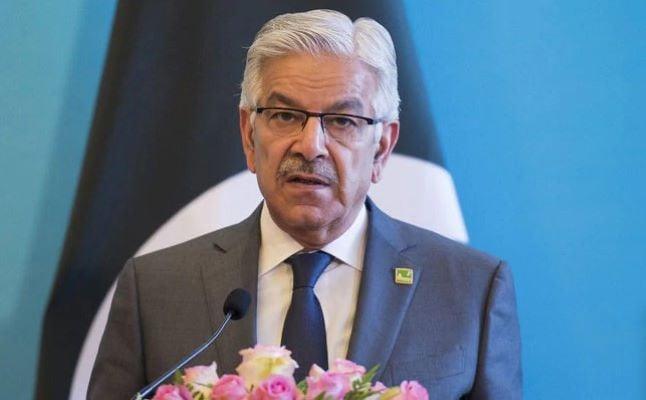Federal Defense Minister Khawaja Asif said that Indian Prime Minister Narendra Modi faces growing criticisms inside and outside the Indian Parliament, declaring that “Modi days are counted” and that the final verdict rests with the Indian audience.
Speaking to journalists, Asif described the position of Pakistan above all potential dialogue with India, saying that talks would focus on three main questions: terrorism, cashmere and water disputes.
He confirmed that terrorism would be on the agenda, as well as the long -standing conflict of the cashmere and the concerns concerning the management of India of the Industry Water Treaty.
Asif has reiterated Pakistan’s position on counter-terrorism, noting that the country has been the victim of terrorism for 25 years and continues to be unjustly blamed. “The world must now decide by itself. Pakistan has suffered the most from the world war against terrorism,” he said, adding that Pakistan’s efforts and sacrifices should be recognized.
The Minister recalled that Prime Minister Shehbaz Sharif had already proposed to investigate recent terrorist incidents and said that Pakistan remains open to dialogue – provided that its role in the fight against terrorism is recognized.
In cashmere, Asif pointed out that the dispute remains unresolved and must be addressed in all talks. Regarding water issues, he criticized attempts to politify the issue and warned that the Industry Water Treaty should not be falsified.
He accused India of supporting terrorism for years and called it “international terrorist actor”, referring to the proofs that would have been found in Canada and the United States. “This evidence should be presented in all future talks,” he said.
Commenting on the Indian political climate, Asif said that Modi had lost control and failed to manage increasing dissent. “He tried to contain the situation in his recent speech, but things went beyond his scope,” said AIF.
The minister also alleged that India has sponsored terrorism for years, with evidence of Indian participation in both Canada and the United States.
“These facts must be put to the table in any negotiation,” he said.
The Minister concluded by noting that Modi’s recent speech was an attempt to contain political damage, but said that the situation had already disturbed beyond the reparation.
The ceasefire in India-Pakistan follows climbing, but a fragile calm persists
A complete and immediate ceasefire between India and Pakistan was announced on May 10 after days of increased military exchanges that brought nuclear neighbors to the edge of the war.
The announcement was made for the first time by US President Donald Trump and later confirmed by Pakistani Prime Minister Shehbaz Sharif, Vice-Prime Minister Ishaq Dar, Indian Foreign Affairs Minister S. Jaishankar and US Secretary of State Marco Rubio.
The tensions broke out after an attack on April 22 in Pahalgam, the Indian illegally occupied Jammu-et-Cachemire (Iiojk), which made 26 dead civilians.
India blamed the elements based in Pakistan without presenting any evidence, Islamabad rejected the allegations. In response, India has closed the Wagah border, revoked visas and suspended the Water Treaty of the Indus – Move Pakistan called “Act of War”.
The conflict has intensified with the allocation of missiles from India and drone incursions when it launched its Sindoor operation.
The Pakistan army launched the Bunyan-Un-Marso Operation in retaliation, and announced that it had shot down five Indian planes, including Rafales-and intercepted 77 Harop Israeli manufacturing drones.
After a diplomatic intervention led by Washington, the two parties agreed to stop military activity through land, air and sea. However, hours after the break, fresh skirmishes were reported on both sides of the control line.
Explosions were heard in Srinagar and shooting exchanges were cited by officials on both sides, which raises concerns about the sustainability of the ceasefire.
Pakistan’s Foreign Office reiterated its commitment to the ceasefire while accusing India of violations.
DG ISPR LT Gen Ahmed Sharif Chaudhry stressed that Pakistan had not asked for the truce, saying that India had initiated the ceasefire request after the pakistan reprisal strikes. He described the war between two nuclear powers as “inconceivable” and “an absurdity”.
Chaudhry confirmed that no Indian pilot was in police custody, rejecting viral allegations as disinformation.
He called the Bunyan-Un-Marsoos operation unified national response to Indian assault, noting that Pakistan had given its commitments to respond decisively and proportionate.
The cities of Pakistan observed that you observed you on Sunday Youm-E-Tashakkur (day of thanks) to mark what was praised at the national level as a successful defense of national sovereignty.




